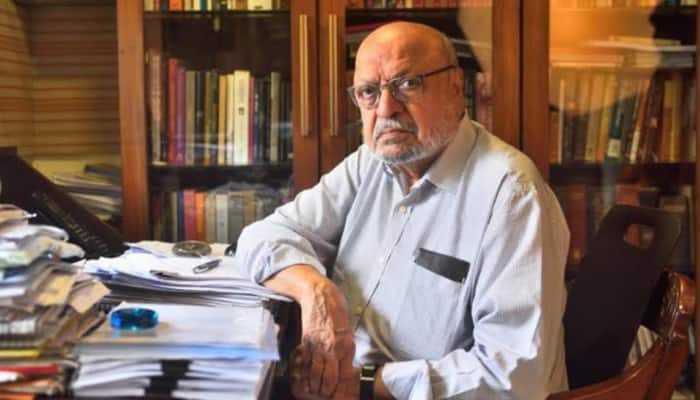'Not A Single Enemy Would Survive': Vladimir Putin's Big Warning To West Over Nuclear Threat To Russia
Putin has disclosed that Moscow has conducted a successful test of the Burevestnik a nuclear-powered and nuclear-capable cruise missile - with a potential range spanning thousands of miles.
Trending Photos
)
MOSCOW: Russian President Vladimir Putin has acknowledged that Moscow has conducted successful tests on a formidable new strategic missile and has left open the possibility of conducting weapons tests involving nuclear explosions, marking a departure of over three decades from such testing. As reported by Reuters, Putin disclosed that Moscow had achieved a successful test of the Burevestnik—a nuclear-powered and nuclear-capable cruise missile—with a potential range spanning thousands of miles.
During an annual gathering of analysts and journalists, he also revealed that Russia was near completion of its Sarmat intercontinental ballistic missile system, a pivotal component of its modernized arsenal of nuclear weapons.
'Hundreds And Hundreds Of Russian Missiles...': Putin
Putin, who has consistently emphasized Russia's nuclear strength since the commencement of the Ukraine invasion on February 24, 2022, emphasized that no rational actor would employ nuclear weaponry against Russia. In the event of such an attack, he stated, "a vast number of our missiles—hundreds, hundreds—would fill the skies, leaving no chance for any enemy to survive."
Russia has refrained from nuclear testing involving explosions since 1990, a year before the dissolution of the Soviet Union. However, Putin did not dismiss the possibility of resuming such testing. He pointed out that the United States had not ratified the nuclear test ban treaty, in contrast to Russia, which had both signed and ratified it. Putin noted the theoretical possibility for the Duma, Russia's parliament, to withdraw its ratification.
Military experts caution that a resurgence of nuclear testing by either Russia, the United States, or both would severely destabilize the current situation, especially when tensions between the two nations are at their highest in six decades. In February, Putin suspended Russia's participation in the New START treaty, which regulates the number of deployable nuclear weapons for each side.
Nonetheless, Putin stressed that Russia need not revise its doctrine regarding the actual use of nuclear weapons, affirming that they may be deployed either in response to a nuclear strike or when the state's existence is threatened.
Addressing a question from Russian analyst Sergei Karaganov, an advocate for lowering the threshold for nuclear use, Putin expressed his disagreement: "I simply don't see the need for this." He further stated, "Currently, there is no scenario that threatens Russian statehood and the existence of the Russian state. No. I believe no rational individual would contemplate using nuclear weapons against Russia."
Karaganov has drawn attention from both Russian and Western strategic analysts by proposing that Russia should reevaluate its threshold for nuclear use to "deter, terrify, and sober up our adversaries." In a recent article, he argued that Russia should "shake up" its enemies by issuing nuclear threats against European countries and US bases in Europe.
Stay informed on all the latest news, real-time breaking news updates, and follow all the important headlines in india news and world News on Zee News.
Live Tv







)
)
)
)
)
)
)
)
)
)
